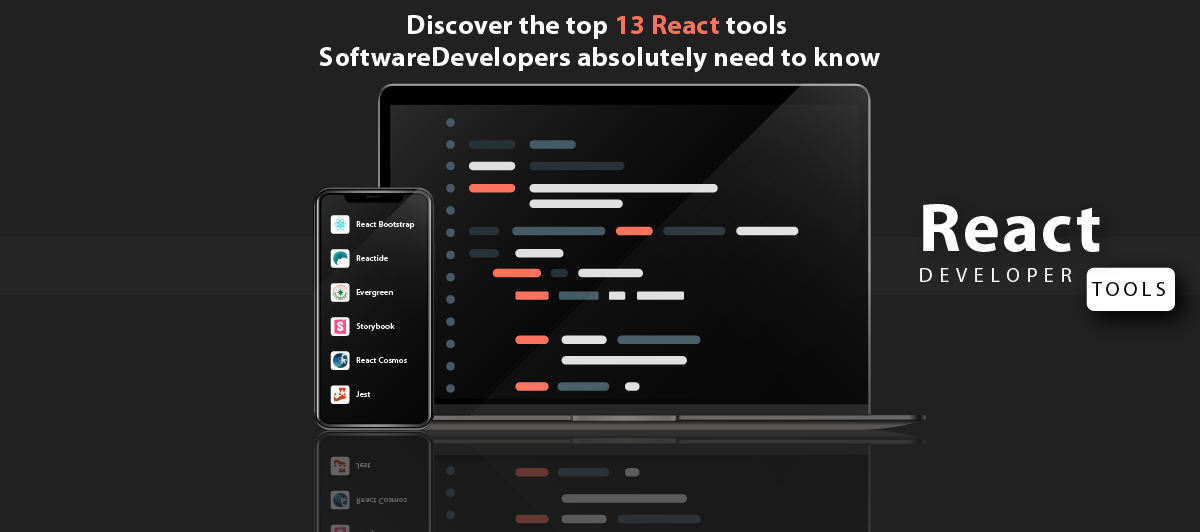Software developers must be equipped with a strong set of tools to excel in their field. The top 10 tools include a robust code editor, version control systems, and a dependable IDE.
Every software developer knows that the right tools can make the difference between a coding nightmare and a streamlined, productive process. In this new age of technology, where efficiency and performance are paramount, having a curated toolkit is crucial for success.
Embracing industry-standard tools not only helps developers write code more efficiently but also allows for better collaboration with peers, leading to higher-quality software production. From the simplicity of a text editor to the complexity of Integrated Development Environments (IDEs), each tool in a developer’s arsenal serves a specific purpose, be it writing, testing, or deploying code. Staying updated with the latest and most effective tools is a must in an ever-evolving field like software development, ensuring that professionals remain competitive and on top of their coding game.
Essential Tools To Boost Your Coding Efficiency
The right tools can turn a daunting task into a piece of cake. Coding is no different. For software developers, efficiency is key, and selecting the best coding tools is vital. This article will explore the must-have tools that should be in every developer’s toolkit to boost productivity and improve code quality.
Why Tool Selection Matters For Developers
Choosing the right tools can significantly impact a developer’s workflow. It makes coding smoother, debugging simpler, and collaboration more seamless. A well-curated set of tools means developers can focus more on writing excellent code than on the tools themselves.
Evaluating The Perfect Coding Toolkit
To build the perfect coding toolkit, consider versatility, ease of use, and integration capabilities. It should consist of an intelligent code editor, a robust version control system, seamless collaboration tools, and efficient debugging solutions.

Credit: www.simplilearn.com
>> My Best Recommended & Proven Way to Earn $100 Daily at NO COST – Watch THIS FREE Training Video to Get Started >>
Text Editors And Ides: The Developer’s Workspace
Imagine a chef without a kitchen, or a painter without a canvas. For
software developers, text editors and Integrated Development Environments
(IDEs) are just as crucial. They provide the digital canvas to craft code
masterpieces. Whether you’re a novice programmer or a seasoned developer,
the right tools are critical to efficiency and productivity. With countless
options available, choosing the best text editor or IDE can shape your
coding experience for the better.
Popular Choices For Code Editing
Let’s dive into the well of editing tools every coder swears by:
- Visual Studio Code – A versatile editor with extensive plugin support
- Sublime Text – Noted for speed and a user-friendly interface
- Atom – A hackable editor for modern developers
- IntelliJ IDEA – Designed for ultimate creative power in Java
- Eclipse – An open-source IDE with robust community support
Features That Enhance Coding Productivity
Selecting a text editor or IDE isn’t just about brand names; it’s about features:
| Feature | Benefit |
|---|---|
| Syntax Highlighting | Makes code easier to read and bugs easier to spot |
| Code Completion | Speeds up typing and reduces syntax errors |
| Debugging Tools | Identifies issues quickly with real-time analysis |
| Version Control Integration | Keeps track of changes and facilitates team collaboration |
| Customizability | Modifies the work environment to your liking |
Version Control Systems: Collaborate And Track Changes
Version Control Systems (VCS) are essential in the world of software development.
They allow teams to collaborate on code by tracking every change.
Picture a tool that remembers all your project’s history.
With VCS, you can compare, restore, and merge code with ease.
Let’s dive into how these systems streamline your coding workflow.
Understanding Git And Its Alternatives
Git is the most popular system for version control today.
It helps developers manage code changes across multiple computers.
Think of Git like a time machine for your code projects.
Yet, alternatives like Mercurial, SVN, and Bazaar also offer unique features.
For example:
- Mercurial: Known for its simplicity and high performance.
- SVN (Subversion): Great for projects with a linear development process.
- Bazaar: Offers great flexibility and is user-friendly for beginners.
Choose a system that fits your team’s needs the best.
Best Practices For Effective Version Control
No matter what tool you use, certain practices ensure smooth project management.
Here are some tips to follow:
- Make frequent, small commits to make tracking changes easier.
- Use clear, descriptive commit messages so everyone knows what changed.
- Set up branches to isolate new features or fixes from the main project.
- Merge changes carefully to avoid code conflicts.
- Backup your code often by pushing to a remote repository.
Remember, the goal is to work smarter, not harder.
A good VCS supports a productive and collaborative environment.
>> My Best Recommended & Proven Way to Earn $100 Daily at NO COST – Watch THIS FREE Training Video to Get Started >>
Debugging Tools: Squash Bugs Like A Pro
Software development often entails facing off with pesky bugs.
But fear not!
With the right set of debugging tools, you can tackle any issue that comes your way.
Let’s dive into the essentials for becoming a bug-squashing superhero.
Choosing The Right Debugging Software
Not every hammer is right for the nail. In the vast sea of debugging tools,
choosing the right one can make a huge difference.
- Consider compatibility: Your tools must align with your development environment.
- Look for integrations: Tools that play well with others save time.
- Assess features: Do you need complex breakpoints or real-time analysis?
Advanced Techniques For Faster Bug Resolution
There’s more to debugging than stepping through code.
Advanced techniques can skyrocket your productivity.
-
Static Analysis: Tools like
SonarQubehelp prevent bugs before they occur. - Automated Testing: Implement continuous testing to catch bugs early on.
- Profiling: Use profilers to track performance issues and tighten efficiency.
Remember, efficiency is key when dealing with bugs.
Experiment with these methods to find your best fit. Ready to become a debugging guru?
Automation Servers: Streamline Development Processes
Imagine a toolbox, but for software developers. It’s a box where each tool boosts efficiency and polishes the final product. Among these, automation servers shine brightly. They take the repetitive, complex tasks and turn them into smooth, automatic processes. Your build, test, and deploy phases become consistent and fast.
Setting Up Continuous Integration And Delivery
Continuous integration (CI) and continuous delivery (CD) are game-changers. They blend code from different developers into one shared repository. This happens often, reducing the chance of major clashes. Set up a CI/CD pipeline and your code is always ready to ship, polished and tested.
- Select an automation server: Jenkins, Travis CI, or CircleCI are popular choices.
- Configure your build: Let it catch issues by running tests on every push.
- Automate deployment: With CD, push code to production safely, knowing it’s been tested.
The Role Of Automation In Quality Assurance
Quality assurance (QA) is vital. Automation makes it consistent. Automated tests repeat the same steps, finding bugs human eyes might miss. Teams get feedback quickly, fix problems sooner, and keep quality high.
| Task | Tool |
|---|---|
| Unit tests | Jest, Mocha |
| Functional tests | Selenium, Cypress |
| Performance tests | JMeter, LoadRunner |

Credit: www.bigscal.com
>> My Best Recommended & Proven Way to Earn $100 Daily at NO COST – Watch THIS FREE Training Video to Get Started >>
Enhance Your Coding With Code Libraries And Frameworks
Every successful software developer knows the importance of utilizing code libraries and frameworks. These tools, packed with pre-written code, streamline the development process. They help in creating robust software quickly and efficiently. In this section, we delve into how these assets can enhance your coding practices and boost your productivity.
The Power Of Reusable Code Components
Code libraries are treasure troves for developers, offering a variety of reusable components. They save time and effort by providing tested and ready-to-use code snippets. This lets you focus on unique aspects of development rather than reinventing the wheel.
Benefits of leveraging code libraries include:
- Efficiency: Quickly integrate common functionalities.
- Reliability: Use community-tested modules with confidence.
- Maintenance: Keep your codebase updated with minimal hassle.
Selecting Frameworks For Speedy Development
Frameworks offer a structured foundation for your projects. Choosing the right one is crucial for meeting deadlines and delivering quality software. With numerous options available, it’s important to consider your project needs when making a selection.
| Framework | Type | Use-Case |
|---|---|---|
| React | Front-end | User Interfaces |
| Angular | Front-end | Single Page Applications |
| Ruby on Rails | Full-stack | Rapid Web Development |
| Django | Full-stack | Data-Driven Websites |
Tips for selecting the right framework:
- Consider the framework’s popularity and community support.
- Evaluate the learning curve based on your current skills.
- Check compatibility with the other tools you use.

Credit: www.reddit.com
Frequently Asked Questions (FAQ’s)
Q. Which Tool Is Best In Software Development?
The best tool for software development depends on specific project requirements; popular choices include Visual Studio Code for versatility and GitHub for collaboration and version control.
Q. What Tools Must Have When Writing Code?
Essential coding tools include a text editor or IDE, version control system like Git, a debugger, build automation tool, and linters or code quality checkers.
Q. What Software Should A Programmer Have?
A programmer should have an integrated development environment (IDE), code editor, version control system, and debugging tools. Database management software and collaboration platforms can also be essential.
Q. Which Tool Should A Developer Use?
Developers should choose tools that align with their project requirements, such as IDEs like Visual Studio or code editors like VSCode, and relevant frameworks.
Q. What Tools Do Software Developers Use?
Software developers typically use integrated development environments (IDEs), version control systems, code editors, debuggers, and build automation tools to streamline their workflow.
Conclusion
Embracing the right tools paves the way for efficiency in software development. Each one adds value, optimizing workflows and sparking innovation. Remember, investing in your toolkit is investing in your craft. As you continue to refine your skills, these ten tools will serve as steadfast allies in navigating the coding landscape.
>> My Best Recommended & Proven Way to Earn $100 Daily at NO COST – Watch THIS FREE Training Video to Get Started >>
Thanks for taking the time to read my article “10 Must-Have Tools for Every Software Developer Must Know!”,Hopefully it will help!



